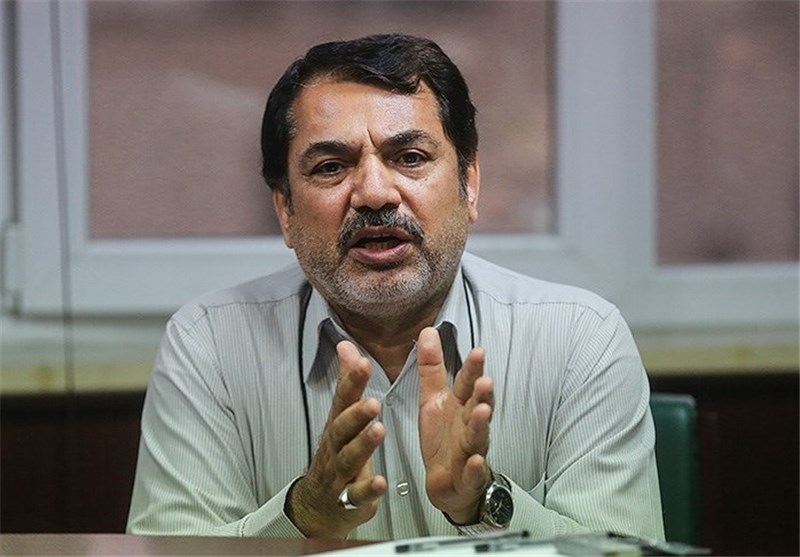Alwaght- Strikes on a Mossad base in the capital of the Iraqi Kurdistan region Erbil in the early hours of Sunday was a news that fast hit the global media headlines. As a result of the missile attack, the spying base was destroyed and unofficial resources reported death of a number of Israeli intelligence officers.
After the attack, Iran's Islamic Revolutionary Guard Corps (IRGC) issued a statement saying "following the recent crimes of the fake Zionist regime and the previous announcement that the crimes and evil actions of this infamous regime will not go unanswered, last night the strategic center of Zionist conspiracy y and evil was targeted by powerful and pinpoint missiles of the Islamic Revolutionary Guard Corps."
Some analysts called the strikes a response to recent Israeli actions against the Iranian nuclear sites and some said they represented a message to the leaders of Kurdistan region who, by rejecting any Israeli presence in the autonomous region, dismissed the Iranian warning about giving the Israelis a pass for activity on their soil.
Alwaght has talked to Hussein Royvaran, an expert of West Asian affairs, asking him for various aspects of the operation.
Alwaght- Do you have exact details of the damages sustained by the Israelis?
Royvaran: What Kurdish TV stations in the Kurdish region showed is that rockets hit the building, and eight rockets led to destruction of the building, but it is not yet known whether the attack caused casualties. Only one news outlet called IntelSky claimed that in response to the attack, the Israelis vowed they would avenge the blood of those killed. There is no evidence the outlet's report is valid but this is the only media that suggests Tel Aviv accepted that the building was a spying site and incurred damage.
Alwaght- What is your assessment about the effects of this attack on deterring the Israeli attacks in Syria?
Royvaran-National security is a serious issue and unfortunately the Kurdish region's allows such terrorist groups as PJAK access and presence on the borders with Iran. This group receives services, has training centers, facilities, and even offices, and thus threatens Iran's national security by terrorist operations in Western Azerbaijan and Kurdistan provinces.
Also, there is Israeli presence and clearly the Kurdish leaders played a role in assassination of nuclear scientists and sabotage actions inside Iran. In such circumstances, it is natural that Iran will not tolerate the systemic presence of Mossad in the Kurdistan region and will not allow them to plan and recruit forces in order to carry out terrorist and sabotage actions in Iran. So, I believe that this action is a natural action in defense of the national security of Iran launched by Iranian forces.
In the meantime, some link this action to the martyrdom of two Iranian officers in Syria, but I think that the missile attack on the Mossad spy base in Erbil was more important than an action of revenge, and mainly Iran's national security was taken into account. Actually, by the attack, Iran sent a message of zero-tolerance to threats to its national security.
Alwaght- Why did Iran launch the attack from its soil whereas it could strike the Israelis using other ways?
Royvaran-Iran's move to attack from its territory carries an important message, and the Islamic Republic has sought to send a clear, decisive, and direct message to the leaders of the Kurdish leaders to let them know that their jeopardizing policies are unacceptable and intolerable.
Alwaght- Kurdish region's authorities sought to deny any Mossad presence in their areas. How high is Iranian intelligence dominance of Mossad activities in Iraq?
Royvaran- The Kurdish region denied the Israeli presence but there are many signs of Mossad presence in the region, making Kurdish denial senseless. The Israelis had an extensive presence during the Kurdish referendum and some Israeli media and even ministers were in Erbil during the event. Kurdish oil sales to Israel via Turkey's Ceyhan Port is on the rise. Barzani several times visited Israel. Therefore, the claim that the Kurdish region has no relationship with the Israeli regime is not acceptable and all indications deny this claim. The reason for Kurdish denial is a policy and a choice. The Kurdish officials are seeking interests and separation from Iraq by this policy and they rely on Tel Aviv and some Western powers to realize their goals.
Alwaght- How do you see reactions by Iraqi public and officials to the attack?
Royvaran- Concerning Iraqi public reaction, all are sure that Erbil has ties with Tel Aviv and this is an obvious issue. Concerning Baghdad officials, I must say that unfortunately many federal officials have no power to even remove a soldier in Kurdistan region and the Kurdish officials pay no heed to the central government.
On Sunday and along with the Iranian attacks, attacks were also launched by Turkey. But the question is why the Kurdish officials turned a blind eye to the Turkish attacks and redacted to Iran's. We can suggest that it is political reasons that make them adopt double standards. Concerning criticism by some Iraqi officials, we should know their stances were driven by preconception.



























